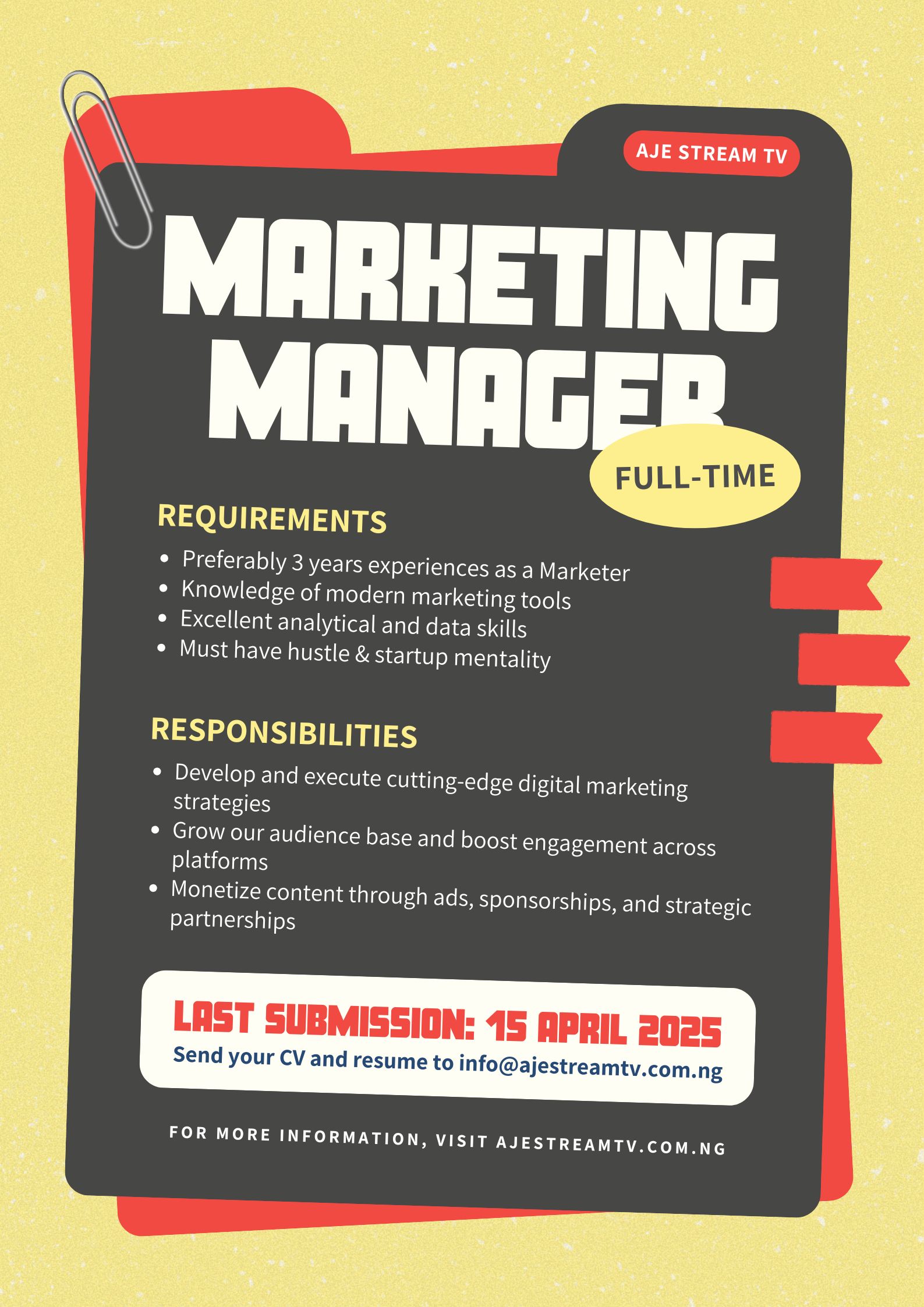In a renewed dedication, the Federal Government and other key critical stakeholders in Nigeria’s environmental sector have reaffirmed their commitment to ending plastic pollution across the country.
This gesture is geared towards aligning with global efforts to combat the growing plastic crisis, which poses serious environmental, economic, and public health threats.
Minister of Environment, Balarabe Abbas Lawal gave the disclosure during the 2025 World Environment Day commemoration in Abuja, themed “Ending Plastic Pollution.”
He assured that under the leadership of President Bola Ahmed Tinubu, the government remains committed to creating a cleaner, greener, and more resilient environment.
“In line with the Renewed Hope Agenda, we are taking decisive steps to address plastic pollution at all levels,”
”The Federal Ministry of Environment has developed and is implementing a National Policy on Plastic Waste Management, which provides a strategic framework for reducing plastic use, promoting recycling, and encouraging innovation in alternatives to single-use plastics.”he said.
Lawal added that the Ministry is supporting circular economy models and working closely with government ministries, departments, and agencies to promote alternatives to plastics.
He also emphasized ongoing collaboration with stakeholders across government, industry, and civil society to ensure policies have meaningful impact.
In her goodwill message on “WORLD ENVIRONMENT DAY”, Senior Vice President, Corporate Services at Oando Clean Energy Limited (OCEL), Alero Balogun, stated that plastic pollution is no longer a distant threat but a daily reality.
“In Nigeria, plastic waste clogs drains, pollutes waterways, chokes soil, and disrupts livelihoods, especially in communities with weak environmental safeguards,” she said.
She highlighted OCEL’s PET Bottle Recycling Project in Ogun State as part of their flagship contribution to tackling the crisis. The facility, with a processing capacity of 2,750 metric tons per month—equivalent to over 100 million PET bottles—aims to turn waste into economic opportunity.
“This project will not only divert plastic from landfills and open environments but also create sustainable jobs, build local supply chains, and empower micro-entrepreneurs, especially women,”
she noted. “Our vision is to turn waste into wealth, dignity, and opportunity for thousands of Nigerians.”
UNICEF Nigeria’s Chief of WASH, Jane Bevan, described the theme “Ending Plastic Pollution” as both timely and urgent.
“The climate crisis is fundamentally a children’s crisis,” she said. “Children and youth—particularly in vulnerable communities—face the harshest consequences of plastic pollution and environmental degradation.”
Bevan noted that Nigeria is among the most climate-vulnerable countries in the world, with rising temperatures, floods, and droughts already impacting children’s health, education, and future.
However, she expressed optimism, highlighting that young Nigerians are also leading the charge for change.
WORLD ENVIRONMENT DAY: FG Moves to End Plastic Pollution Nationwide
In a renewed dedication, the Federal Government and other key critical stakeholders in Nigeria’s environmental sector have reaffirmed their commitment to ending plastic pollution across the country.
This gesture is geared towards aligning with global efforts to combat the growing plastic crisis, which poses serious environmental, economic, and public health threats.
Minister of Environment, Balarabe Abbas Lawal gave the disclosure during the 2025 World Environment Day commemoration in Abuja, themed “Ending Plastic Pollution.”
He assured that under the leadership of President Bola Ahmed Tinubu, the government remains committed to creating a cleaner, greener, and more resilient environment.
“In line with the Renewed Hope Agenda, we are taking decisive steps to address plastic pollution at all levels,”
”The Federal Ministry of Environment has developed and is implementing a National Policy on Plastic Waste Management, which provides a strategic framework for reducing plastic use, promoting recycling, and encouraging innovation in alternatives to single-use plastics.”he said.
Lawal added that the Ministry is supporting circular economy models and working closely with government ministries, departments, and agencies to promote alternatives to plastics.
He also emphasized ongoing collaboration with stakeholders across government, industry, and civil society to ensure policies have meaningful impact.
In her goodwill message on “WORLD ENVIRONMENT DAY”, Senior Vice President, Corporate Services at Oando Clean Energy Limited (OCEL), Alero Balogun, stated that plastic pollution is no longer a distant threat but a daily reality.
“In Nigeria, plastic waste clogs drains, pollutes waterways, chokes soil, and disrupts livelihoods, especially in communities with weak environmental safeguards,” she said.
She highlighted OCEL’s PET Bottle Recycling Project in Ogun State as part of their flagship contribution to tackling the crisis. The facility, with a processing capacity of 2,750 metric tons per month—equivalent to over 100 million PET bottles—aims to turn waste into economic opportunity.
“This project will not only divert plastic from landfills and open environments but also create sustainable jobs, build local supply chains, and empower micro-entrepreneurs, especially women,”
she noted. “Our vision is to turn waste into wealth, dignity, and opportunity for thousands of Nigerians.”
UNICEF Nigeria’s Chief of WASH, Jane Bevan, described the theme “Ending Plastic Pollution” as both timely and urgent.
“The climate crisis is fundamentally a children’s crisis,” she said. “Children and youth—particularly in vulnerable communities—face the harshest consequences of plastic pollution and environmental degradation.”
Bevan noted that Nigeria is among the most climate-vulnerable countries in the world, with rising temperatures, floods, and droughts already impacting children’s health, education, and future.
However, she expressed optimism, highlighting that young Nigerians are also leading the charge for change.
LEAVE A REPLY
In a renewed dedication, the Federal Government and other key critical stakeholders in Nigeria’s environmental sector have reaffirmed their commitment to ending plastic pollution across the country.
This gesture is geared towards aligning with global efforts to combat the growing plastic crisis, which poses serious environmental, economic, and public health threats.
Minister of Environment, Balarabe Abbas Lawal gave the disclosure during the 2025 World Environment Day commemoration in Abuja, themed “Ending Plastic Pollution.”
He assured that under the leadership of President Bola Ahmed Tinubu, the government remains committed to creating a cleaner, greener, and more resilient environment.
“In line with the Renewed Hope Agenda, we are taking decisive steps to address plastic pollution at all levels,”
”The Federal Ministry of Environment has developed and is implementing a National Policy on Plastic Waste Management, which provides a strategic framework for reducing plastic use, promoting recycling, and encouraging innovation in alternatives to single-use plastics.”he said.
Lawal added that the Ministry is supporting circular economy models and working closely with government ministries, departments, and agencies to promote alternatives to plastics.
He also emphasized ongoing collaboration with stakeholders across government, industry, and civil society to ensure policies have meaningful impact.
In her goodwill message on “WORLD ENVIRONMENT DAY”, Senior Vice President, Corporate Services at Oando Clean Energy Limited (OCEL), Alero Balogun, stated that plastic pollution is no longer a distant threat but a daily reality.
“In Nigeria, plastic waste clogs drains, pollutes waterways, chokes soil, and disrupts livelihoods, especially in communities with weak environmental safeguards,” she said.
She highlighted OCEL’s PET Bottle Recycling Project in Ogun State as part of their flagship contribution to tackling the crisis. The facility, with a processing capacity of 2,750 metric tons per month—equivalent to over 100 million PET bottles—aims to turn waste into economic opportunity.
“This project will not only divert plastic from landfills and open environments but also create sustainable jobs, build local supply chains, and empower micro-entrepreneurs, especially women,”
she noted. “Our vision is to turn waste into wealth, dignity, and opportunity for thousands of Nigerians.”
UNICEF Nigeria’s Chief of WASH, Jane Bevan, described the theme “Ending Plastic Pollution” as both timely and urgent.
“The climate crisis is fundamentally a children’s crisis,” she said. “Children and youth—particularly in vulnerable communities—face the harshest consequences of plastic pollution and environmental degradation.”
Bevan noted that Nigeria is among the most climate-vulnerable countries in the world, with rising temperatures, floods, and droughts already impacting children’s health, education, and future.
However, she expressed optimism, highlighting that young Nigerians are also leading the charge for change.
LEAVE A REPLY
In a renewed dedication, the Federal Government and other key critical stakeholders in Nigeria’s environmental sector have reaffirmed their commitment to ending plastic pollution across the country.
This gesture is geared towards aligning with global efforts to combat the growing plastic crisis, which poses serious environmental, economic, and public health threats.
Minister of Environment, Balarabe Abbas Lawal gave the disclosure during the 2025 World Environment Day commemoration in Abuja, themed “Ending Plastic Pollution.”
He assured that under the leadership of President Bola Ahmed Tinubu, the government remains committed to creating a cleaner, greener, and more resilient environment.
“In line with the Renewed Hope Agenda, we are taking decisive steps to address plastic pollution at all levels,”
”The Federal Ministry of Environment has developed and is implementing a National Policy on Plastic Waste Management, which provides a strategic framework for reducing plastic use, promoting recycling, and encouraging innovation in alternatives to single-use plastics.”he said.
Lawal added that the Ministry is supporting circular economy models and working closely with government ministries, departments, and agencies to promote alternatives to plastics.
He also emphasized ongoing collaboration with stakeholders across government, industry, and civil society to ensure policies have meaningful impact.
In her goodwill message on “WORLD ENVIRONMENT DAY”, Senior Vice President, Corporate Services at Oando Clean Energy Limited (OCEL), Alero Balogun, stated that plastic pollution is no longer a distant threat but a daily reality.
“In Nigeria, plastic waste clogs drains, pollutes waterways, chokes soil, and disrupts livelihoods, especially in communities with weak environmental safeguards,” she said.
She highlighted OCEL’s PET Bottle Recycling Project in Ogun State as part of their flagship contribution to tackling the crisis. The facility, with a processing capacity of 2,750 metric tons per month—equivalent to over 100 million PET bottles—aims to turn waste into economic opportunity.
“This project will not only divert plastic from landfills and open environments but also create sustainable jobs, build local supply chains, and empower micro-entrepreneurs, especially women,”
she noted. “Our vision is to turn waste into wealth, dignity, and opportunity for thousands of Nigerians.”
UNICEF Nigeria’s Chief of WASH, Jane Bevan, described the theme “Ending Plastic Pollution” as both timely and urgent.
“The climate crisis is fundamentally a children’s crisis,” she said. “Children and youth—particularly in vulnerable communities—face the harshest consequences of plastic pollution and environmental degradation.”
Bevan noted that Nigeria is among the most climate-vulnerable countries in the world, with rising temperatures, floods, and droughts already impacting children’s health, education, and future.
However, she expressed optimism, highlighting that young Nigerians are also leading the charge for change.


